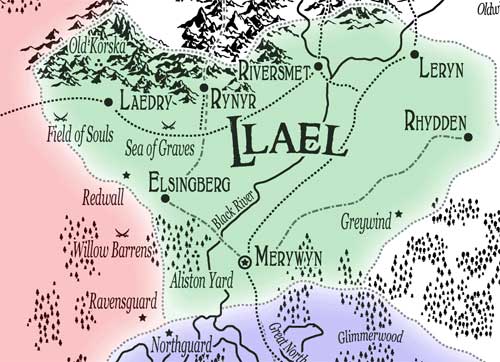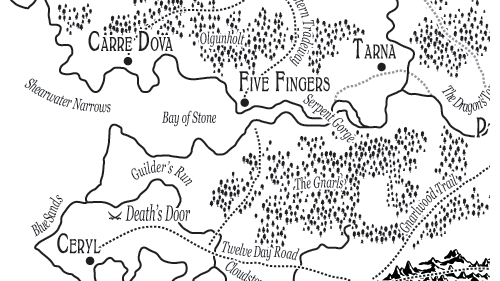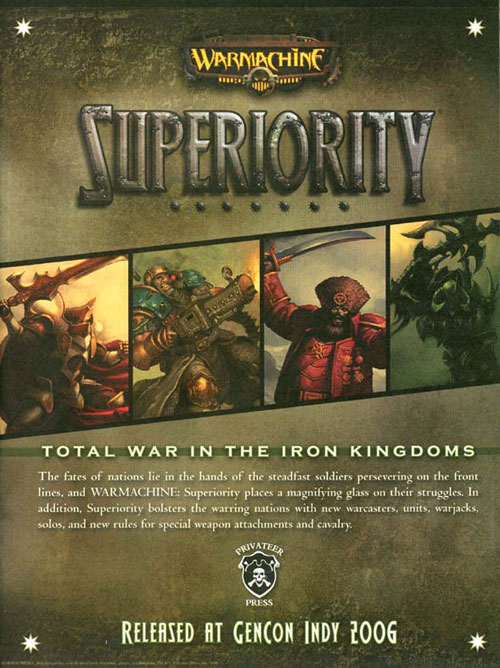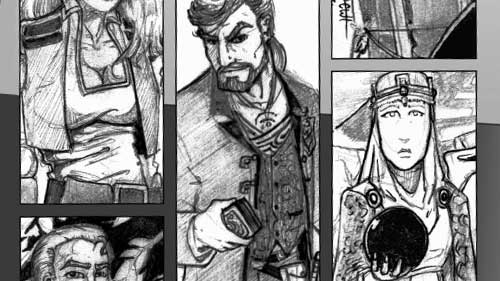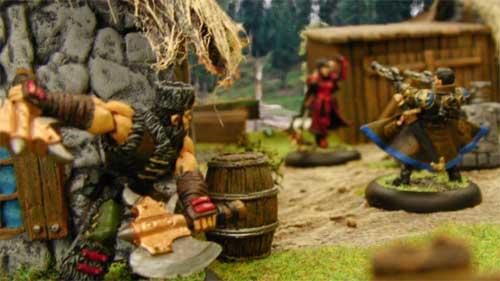
Many moons ago, a company called Privateer Press released a book called the IKCG after years of teeth-gnashing delays, setbacks, consternation, and a change in the core ruleset from d20 3.0 to d20 3.5. In the scramble to convert 400+ pages of content to the new rules, a fair amount of quality control issues slipped through the cracks. Some of the numbers don’t add up, some of the tables contradict the text, there are some rather amusing typos, and so forth.
But hark, news arrives via a mailing list:
Actually we are working on an official errata document for the IKCG to be released at the first of the year.
Paraphrasing the upcoming errata, the Gun Mage will be able to avoid spell failure in light armor as part of his spell focus ability with his pistol. This means if you are not holding your pistol, you will have a chance of spell failure for being in armor. This is different than the wording in the Bard class concerning casting in light armor.
-Nathan Letsinger
Nate Letsinger is the director of the Iron Kingdoms RPG line, and hence in a position to authoritatively make such claims. Since an online errata document isn’t subject to the vagaries of the printing process, and the Privateers already have a tried-and-true FAQ-and-errata web interface (here), I have higher hopes for this “first of the year” release date than I might have for other Iron Kingdoms products.
